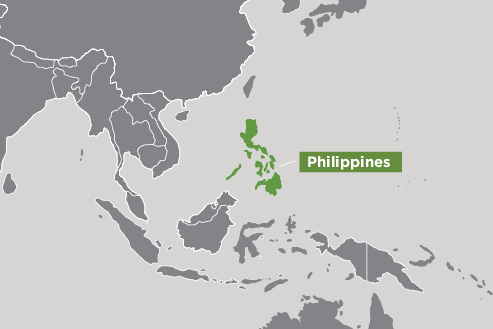Overview
This project aims to establish long-term monitoring and evaluation of the impacts on fish communities and other reef resources of coral restoration in the northern Luzon region, Philippines.
Coral and reef restoration is becoming increasingly important as the global scale of coral reef degradation increases, and the urgent need for active management intervention is realised.
The project development strategy also involves research training for new female postgraduate researchers from the Philippines, and capacity building for local government representatives and other reef workers, community groups and volunteers through involvement in the research surveys and associated training courses.
Expected project outcomes
- Quantifying and comparing fish communities, coral cover and diversity, reef status and trends in the few remaining areas of healthy reefs in Anda Province, northern Luzon.
- Establishing ‘targets’ for fish populations on restored reefs.
- Working with local low-income fisher communities to quantify catches from their local reef fishing activities.
- Determining quantity of fish used for local family and coastal community consumption versus fish sent to market and their values to low-income fishers and their inclusion in the fish market chain.
- Developing a multimedia and training strategy to rapidly and effectively communicate the outcomes from this project to all stakeholders.
- Highlighting the importance of coral reef restoration for improving the socio-economic and ecological values of restored reefs.
Summary of outcomes to date
2019–20
This project is establishing long-term monitoring and evaluation of the impacts on fish communities of coral larval restoration in the northern Luzon region, Philippines. ACIAR projects are restoring degraded Philippines coral reefs using millions of coral larvae to enhance recruitment and re-establish coral communities, and recent innovations have scaled-up to multi-hectare reef areas. Coral reefs provide food security and support livelihoods for coastal communities through local fisheries. Monitoring of fish assemblages has demonstrated increased fish abundance and species richness in larval restoration areas compared with control areas, with early indications of increased abundance of fish targeted by fisheries in restored plots. Fisheries survey data indicate up to 59.7 tonnes of fish are caught in two monsoon seasons, using gill nets, hook and line, fish traps, and spearing as the most common fishing methods, while 30% of fishers use multiple gear types. Fish catch is mostly small demersal species and some pelagic species, with a specific fishery demand for rabbitfish. Less than half of the catch is usually used for personal consumption with the rest sold to markets. Income is low averaging 5,200PHP (~$148 AUD) per month, with about half of the fishers interviewed fully reliant on fishing for their livelihood. Only a small proportion of the fisher community have good knowledge of which areas are allowed for fishing, restricted species, and prohibited fishing methods, highlighting the need for further information and education campaigns to improve fishery management. The majority of fishers’ interviewed believe coral restoration can improve local reef status.



